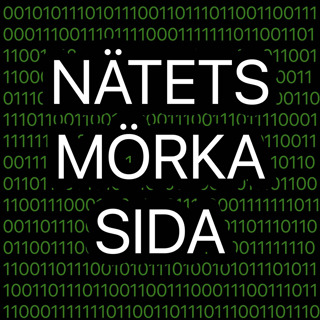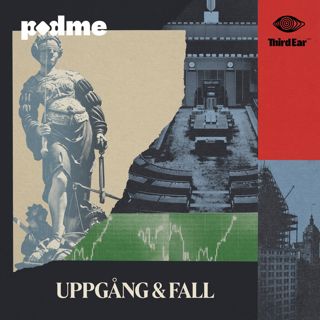
"Fintech Can Be a 1.5 Bridge Into 2.0 DeFi:" 11:FS Co-Founder Simon Taylor
I interviewed Simon Taylor. Simon has the rare quality of being very knowledgeable about decentralized finance but also about fintech. He is the co-founder at fintech consultancy firm, 11:FS, and he previously led blockchain research at Barclays. He also leads the excellent newsletter Fintech Brain Food. Simon points to a world where fintech and defi start to converge. All the capital and users in the traditional finance will have to bridged into crypto at some point and that bridge can be fintech.
12 Okt 202054min

"Fair Launch is a New Way for Founders to Express Themselves:" Gavin McDermott of IDEO CoLab
Hello Defiers! In this week’s interview, I spoke with Gavin McDermott. He's an investor at IDEO CoLab Ventures, the venture arm of design firm IDEO, and he’s one of the creators of Fair Launch Capital. While the name might suggest otherwise, Fair Launch Capital isn’t an investment firm, or at least it’s not a traditional investment firm. Instead, it gives startups no-strings-attached funding so that they can afford security audits and launch their projects in a safe way. They’re asked to consider paying it forward by returning at least the same amount they got but ideally more, to fund the next project. The idea came after the team saw that many founders in crypto were feeling forced to either sell tokens before their platform launched or raise venture capital as one option to pay for audits, or release their projects without the proper security checks. Gavin is hoping fair launch capital provides a viable alternative to venture capital, even if it does end up disrupting his fund's own business model. Since the group unveiled this new funding mechanism late august, the term “fair launch” has taken a life of its own, becoming a gold standard for any new DeFi venture.
3 Okt 202054min

"It Was Exciting But it Was Also Terrifying:" Dan Elitzer and Clinton Bembry on Yam Finance's Backstory
In this week’s episode, I spoke with Dan Elitzer and Clinton Bembry, who were part of the founding team of Yam. Yam Finance is an experiment in rebasing cryptocurrencies, plus token incentives, plus full on-chain governance, plus a DAO-like treasury managed by token holders. It’s also testing the power of the emoji and opened the flood gates to meme-based DeFi tokens. Dan and Clinton tell me the back story of how this crazy project was created, how the group loosely coalesced in a chat group and from there it was just 10 days until launch. They talked about how the project blew past all their wildest expectations, and about the absolute terror of having hundreds of millions of dollars flow into the unaudited code they had pushed into the world.
26 Sep 20201h 2min

"After DeFi, it’s NFTs and DAOs. We're Gathering Tinder:" Jihoz of Axie Infinity
This week’s interview is with Jeff Zirlin, aka Jihoz, growth lead at Axie Infinity. Axie is a digital game built on Ethereum, which involves cute animals going to battle against each other and taking control of your digital assets. The big vision is that as we increasingly live our lives in the digital world, digital assets will become more and more important and applications like Axie Infinity, will become more than just games, but places where people work and socialize. The key value that blockchains and NFT tokens add to this picture is that we’ll be able to actually own these assets. There will be no company or centralized entity able to ban an account and take their assets away.
19 Sep 202059min

"It Turns Out Music Does Have Value. We've Been Pricing It Incorrectly For 20 Years:" RAC
Hello Defiers! In this week’s interview, we chatted with Grammy Award-winning DJ Andre Anjos, aka RAC. Many have seen cryptocurrencies as a way to decentralize the financial system, thanks to the innovation of digital scarcity. RAC says that digital scarcity can also help disrupt the music industry. His experiments have so far showed how distributed networks can be the underlying infrastructure that helps artists can sell their creations directly to fans; how tokens on open markets can help more accurately price goods and help them benefit from secondary trading of their products; and now how digital assets can help strengthen communities.
12 Sep 20201h 10min

"What We're Building is Very Big and We Should Have The Least Concentration Possible:" Aave's Stani Kulechov
Stani Kulechov the founder and CEO of Aave. When we spoke Aave was the second-largest DeFi protocol, but in the days after our conversation, it rose to overtake MakerDAO and become the DeFi platform with the most assets held in its smart contracts, at over $1B in digital assets. It’s been an exponential rise for Aave, which launched just eight months ago and in that short time was able to climb the famous Defi Pulse Total Value Locked ranking to the top. It’s done so pushing DeFi forward by driving innovation in interest-generating tokens, flash loans and delegated credit lines, which are all lowering the barriers of entry to users from all corners of the world to access financial applications. We also get into all the recent yield farming craziness, which he wishes was more restrained.
29 Aug 202059min

"People Want me to be Popular, Not Necessarily Successful; That's the Trick with Personal Tokens:" Alex Masmej
In this week’s episode I speak with Alex Masmej, the first person to raise money by selling tokens not linked to any project, but linked to himself, in a sort of self-IPO. Much like shareholders taking dividends, Alex token holders can have a share of the entrepreneur’s future earnings. The money raised has helped him cover living expenses as he plans to move from Paris to San Francisco and start a tech company. He’s willing to try almost anything and see what sticks. In one of his experiments, he let ALEX holders vote on his daily habits, which is how he came to run 5km almost daily. Most recently, he announced token rewards in exchange for holders to add liquidity to exchanges where Alex is traded. We talk about how to better align token holders' incentives with his own, what mainstream personal tokens may look like, and the Black Mirrorish quality of it all.
15 Aug 202056min





















